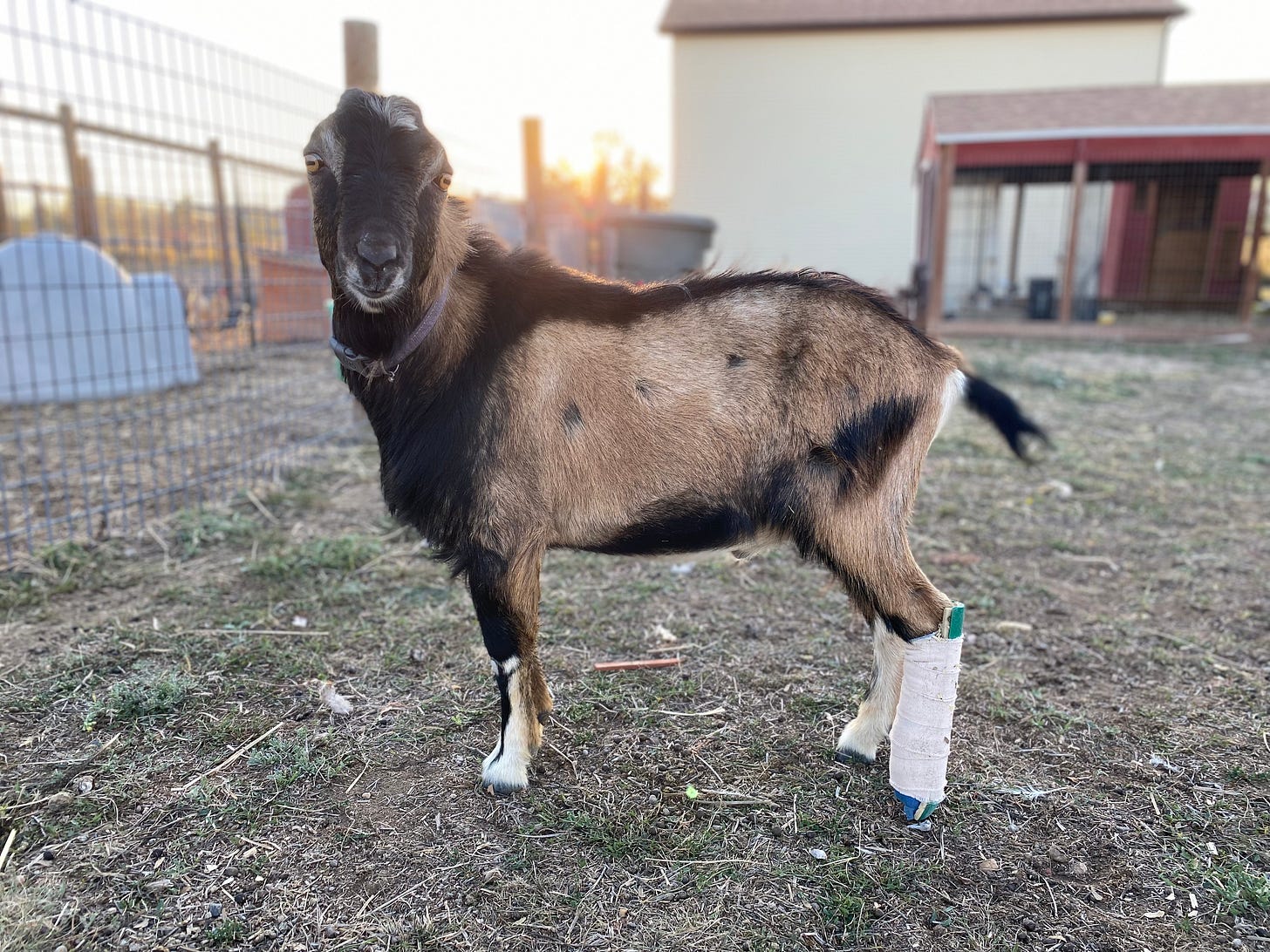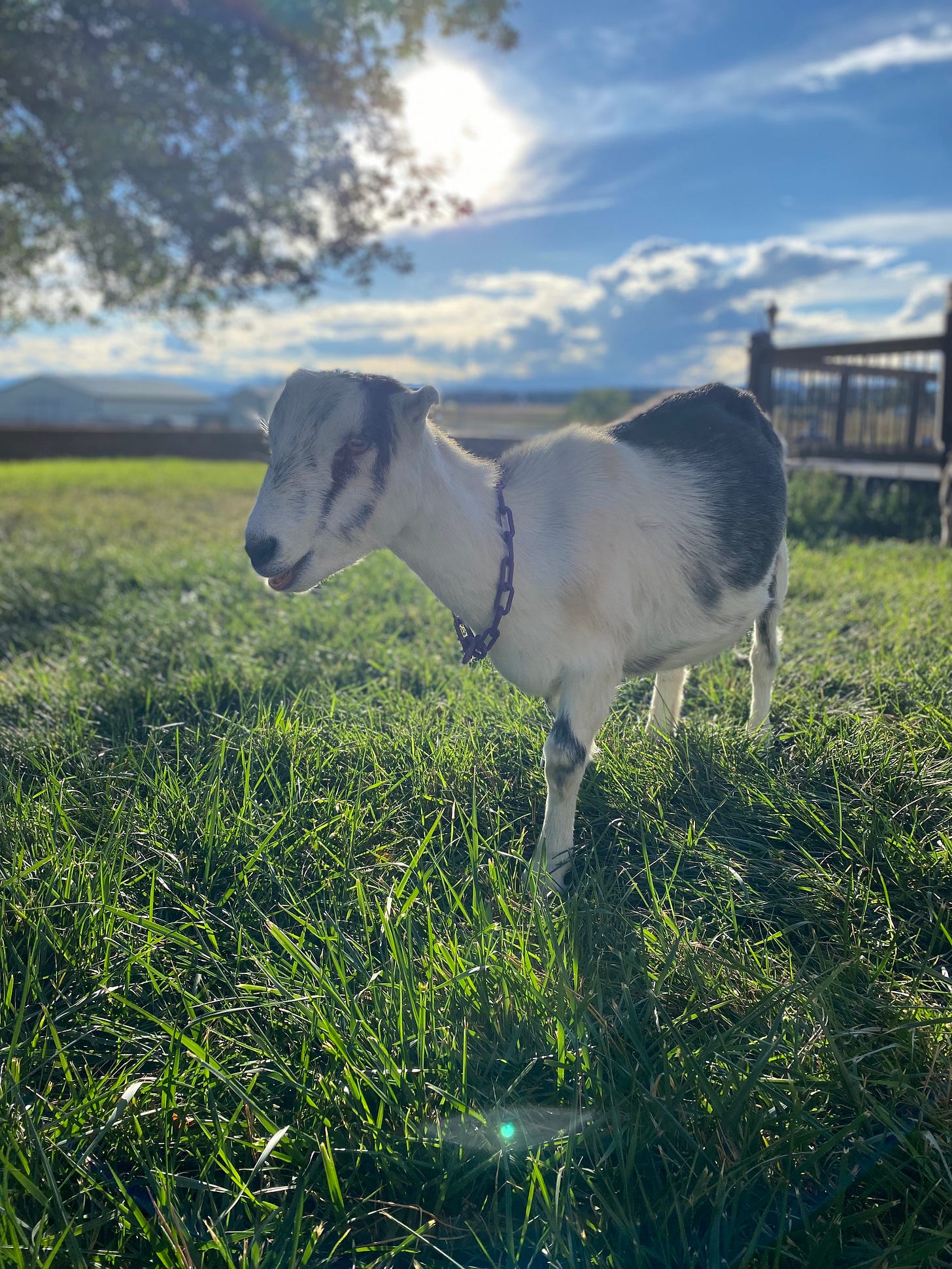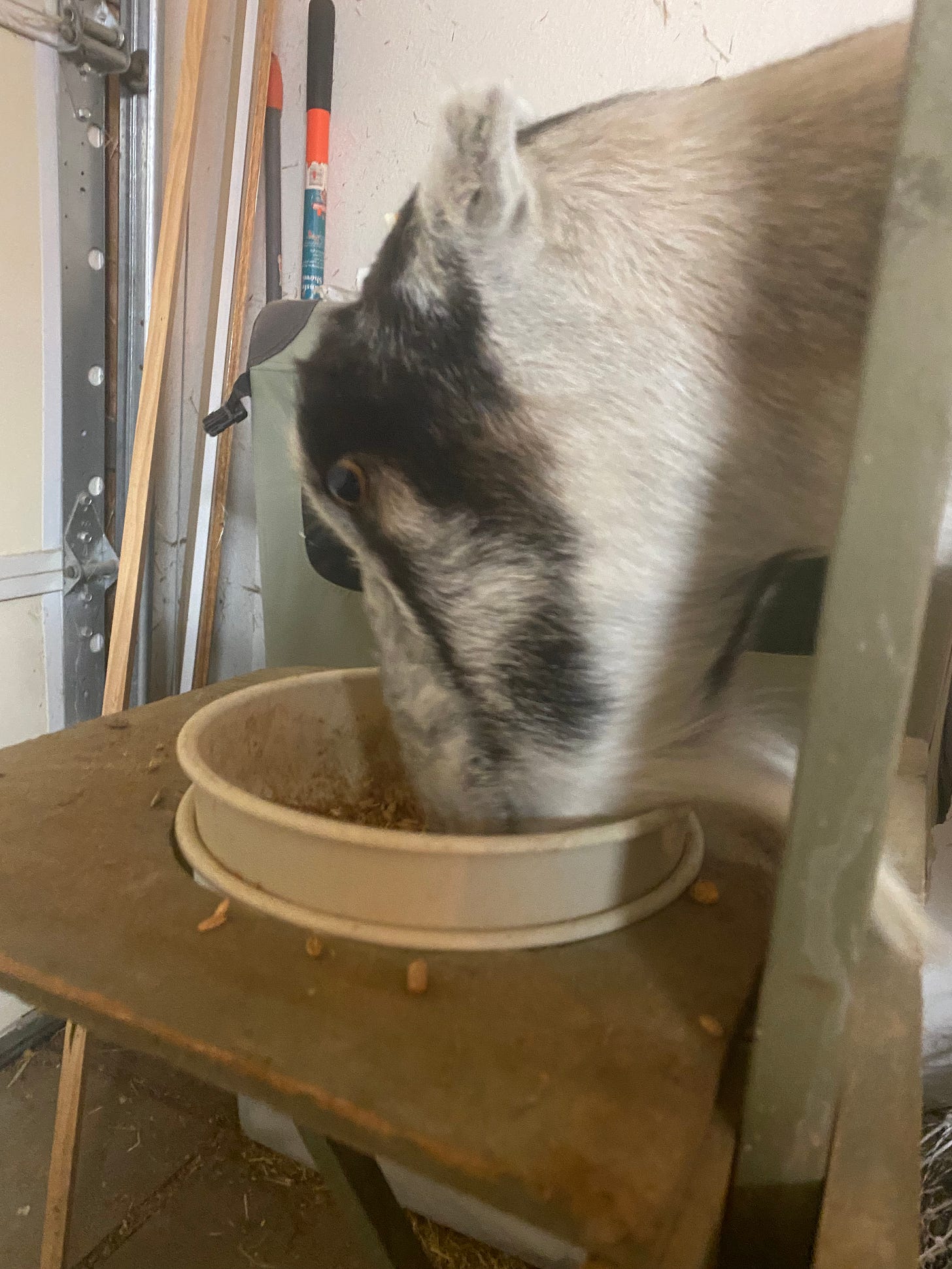You never know how it will go when a goat suffers injury. He could fully recover, or it could get infected and go downhill quickly. Ever since Cinnamon broke his leg, we're all hyper-observant for the slightest indication things are taking a turn for the worse. For now, we're lucky.
But, we're also seeing the vet more than usual. Because Cinnamon must be anesthetized to change his splint correctly, we need a pro. The vet was here again yesterday to check and rewrap Cinnamon's leg. The break is still looking good, and if we can stave off infection, he could make a full recovery.
However, when the vet is here, I have been trying to take advantage of the trip fees and knock out all the preventative care and anything else I can think of.
We test our goats for a slate of diseases every year that requires a blood draw, so I figured the vet could get those done. Although I have gotten much more competent at several veterinary procedures, blood draws on goats are taken from the jugular vein in their necks. I'm qualified to do many things, but stab a neck with a needle? That's a hard no.
After we rewrapped Cinnamon's leg, I pulled the other goats out - one at a time - for their blood draws. The girls each walked straight through the gate and hopped up on their milk stand, ready to be milked and have a treat.
"Wow, they're really trained," the vet said. Our vet is an old-school country large animal guy in coveralls straight out of central casting. While I usually yammer on to fill the space, he's quiet and thoughtful and doesn't spend extra words unless he has something to say. Considering how many goats he sees, calling mine well-trained is high praise. I'll take it.
I worried about the girls each walking to the milk stand, thinking they would get their treats and be milked, only to get stabbed in the neck. Would their training be broken?
Let me tell you if *I* walked over to the milk stand every day and got treats and milked, and then one day I walked over as part of my routine, and instead some guy stabbed my jugular with a needle, I might not be as keen to go back the next time.
So I wasn't sure what milking time would look like last night. Would they refuse to go?
But, goats are not people. They don't have as strong a negative bias when something goes off the rails. Don't get me wrong, as prey animals, they are always aware of danger but have to keep it in perspective - and somehow do.
They milk twice daily, every day, for 305 days a year. One of those times, they get a sting in the neck, but 609 other times, they don't.
So, last night they jumped right back up, ready for treats and milking as if nothing had happened. The single data point didn't overshadow the deluge of goodness they usually get on the stand.
This reminded me of social media. I get so many pleasant or innocuous tweets and posts, but the one bad one can send me into a spiral. Why?
If a goat was out eating grass in a field and got stung by a bee and let it ruin eating from then on, it would simply starve. Goats, who get eaten on the reg by predators, are better at putting bad news in context than I. Maybe it's time to reconsider my perspective.
Something deep in our brains gives outsized weight to the bad news. It sticks with us differently.
Next time someone is mean to me on the internet, I'll just think of my goats jumping right back up on the stand. Most milkings are good, most interactions are good, many people are neutral to nice, and I will no longer allow the negative outliers to dictate the whole of my experience.
I’m going to jump right back on the milk stand and expect it will go well. Hopefully, I won’t get stabbed in the neck too often.







I love the goat perspective. I shall adopt it as well!!❤️
Lovely post. This reminds me of 90/10 principle of Stephen Covey. Although not exactly same context but quite similar. We should not make an issue of the things that are beyond our control. Accepting things with grace as they come, and moving ahead is the key.